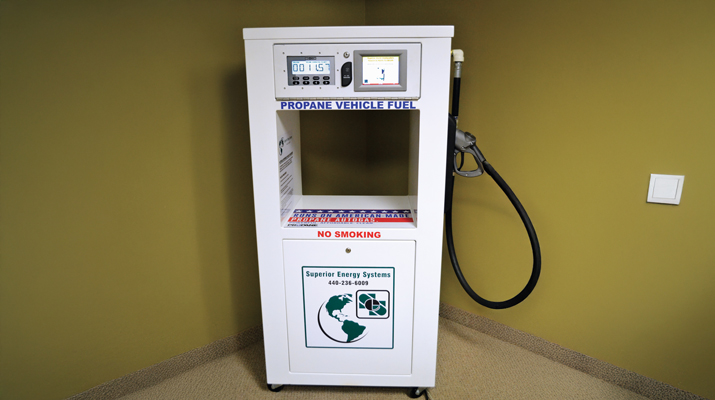The propane industry’s agenda in Washington
Put the new presidential administration and cabinet appointments aside, look beyond hot-button issues such as immigration and health care, and scroll past the latest cringe-worthy tweets from President Donald Trump (I couldn’t resist).
Undoubtedly, Washington has been a hotbed of activity early in 2017, but I’m speaking more directly to issues concerning the propane industry.
For example, the first few months brought us a change in U.S. Department of Transportation cylinder requalification regulations (the well-documented 12-years-to-10-years shift), which the National Propane Gas Association (NPGA) is working to reverse. It brought us closure on hours-of-service 34-hour restart regulations for commercial truck drivers. And it brought us the Volkswagen-U.S. Environmental Protection Agency (EPA) emissions-violations settlement – and potential financial rewards for propane industry stakeholders – to the forefront.
Coming down the pike
A conversation with NPGA’s Phil Squair and Mollie O’Dell revealed several other issues that could impact the propane industry in the months ahead.
The industry dodged the Occupational Safety & Health Administration’s (OSHA) crane rule several years ago when OSHA extended the compliance date to Nov. 10, 2017. But now, a rule nears that would require some crane operators to have third-party certification, which the propane industry argues would become a costly and time-consuming responsibility.
“That’s quickly gone to the top of our agenda because it doesn’t make sense for us to have third-party-certified crane operators working in our industry,” says Squair, the senior vice president of public and governmental affairs at NPGA. “We’re working on building a coalition and approaching Congress to get relief from that rule or carving out that our companies could certify their employees through the PERC (Propane Education & Research Council) curriculum.”
Also on the agenda
Supply and distribution issues have been top of mind since the bitter 2013-14 winter when the industry experienced challenges moving propane in timely fashion to needed destinations.
In recent years, NPGA, in partnership with IHS Markit, has developed a propane inventory report to update members on supply numbers and trends – and ultimately to ensure end-use customers have propane when and where they need it.
NPGA says this report provides members with the timely information they need because it also accounts for growing U.S. propane exports, unlike the U.S. Energy Information Administration’s (EIA) inventory report. The association wants EIA to include a calculation of exports in its data.
“We have an inventory trends analysis that shows days of supply are half the level of EIA data,” Squair says. “This is confusing to the marketplace and a disservice to the public if EIA numbers are unnecessarily optimistic.”
From the EIA to EPA, NPGA is working to equalize the treatment of propane and natural gas vehicle manufacturers. As it stands, manufacturers have an incentive under Corporate Average Fuel Economy standards to produce natural gas vehicles. The incentive was not given to autogas vehicle manufacturers.
EPA also was set to implement changes to its Risk Management Program in March but recently delayed them until 2019. NPGA says these new modifications – pertaining to incident investigations and compliance audits, among other requirements – add even more burdens for hazardous materials facilities, including those with more than 10,000 pounds of propane. Retail operations are exempt from the requirements.
On the radar
A proposed border adjustment tax (BAT), introduced last summer, has drawn plenty of attention in Washington – though its future is unclear. BAT is designed to exempt exports while taxing all imported goods at the corporate tax rate (reduced from 35 percent to 20 percent).
NPGA felt the tax proposal warranted an ICF International-generated memorandum, outlining potential impacts on the domestic propane market (e.g., higher wholesale and retail propane prices), to share with the industry.
Squair says NPGA will approach the export-friendly border tax as an energy security issue and less of a tax issue.
“If the code taxes imports and doesn’t tax exports, it will be even tougher for us to maintain days-of-supply numbers,” he adds.
















